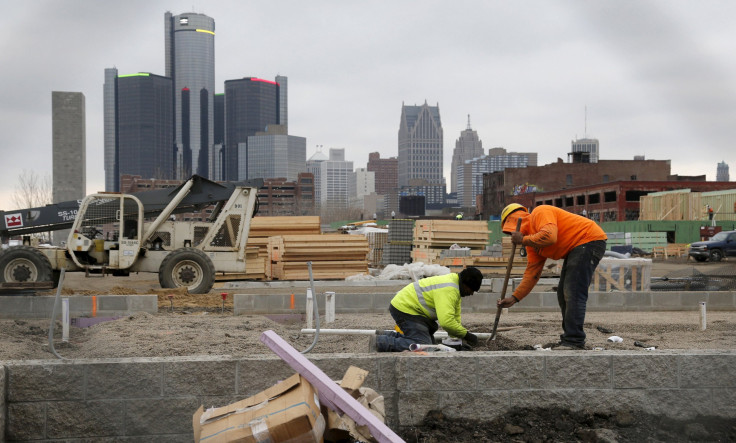US Manufacturing Activity Slumps, Construction Spending Falls

The U.S. manufacturing sector contracted further in December, as the impact of a stronger dollar undermined export profitability, while U.S. construction spending fell for the first time in nearly a year and a half in November, suggesting only moderate economic growth in the fourth quarter of 2015.
The Institute for Supply Management said its index of national factory activity fell to 48.2 from 48.6 in November and is now at its lowest level since the recession days of June 2009.
A reading above 50 indicates expansion in the manufacturing sector and a reading below 50 indicates contraction. The reading was just below expectations of 49 from a Reuters poll of 80 economists.
The employment index fell to 48.1 from 51.3 a month earlier. Expectations called for a reading of 50.
An alternative reading from private data vendor Markit showed continued expansion in manufacturing, but at a slower pace. Markit's purchasing managers' index fell to 51.2 from 52.8 in November, the lowest since October 2012. The new orders subcomponent fell to 50.2 from 53.1, the lowest since September 2009.
Construction spending slipped 0.4 percent, the first and also biggest drop since June 2014, after a downwardly revised 0.3 percent gain in October, the Commerce Department said on Monday. A drop in nonresidential investment offset an increase in housing activity.
The government revised construction data from January 2005 through October 2015 because of a "processing error in the tabulation of data." The revisions, which showed construction spending was not as strong as previously reported for much of 2015, could prompt economists to lower their fourth-quarter gross domestic product estimates.
Growth estimates are currently hovering below a 2.0 percent annual pace. The economy expanded at a 2.0 percent annual rate in the third quarter. Economists polled by Reuters had forecast construction spending rising 0.6 percent in November after a previously reported 1.0 percent increase in October.
Construction outlays were up 10.5 percent compared to November of last year. Construction spending in November was held down by a 0.8 percent drop in nonresidential construction. Outlays on residential construction rose 0.2 percent.
Private construction spending slipped 0.2 percent, but spending on private residential construction rose 0.3 percent.
Public construction outlays declined 1.0 percent. Spending on state and local government construction projects, which is the largest portion of the public sector segment, slipped 0.4 percent. Federal government outlays tumbled 7.2 percent.
© Copyright Thomson Reuters 2024. All rights reserved.











